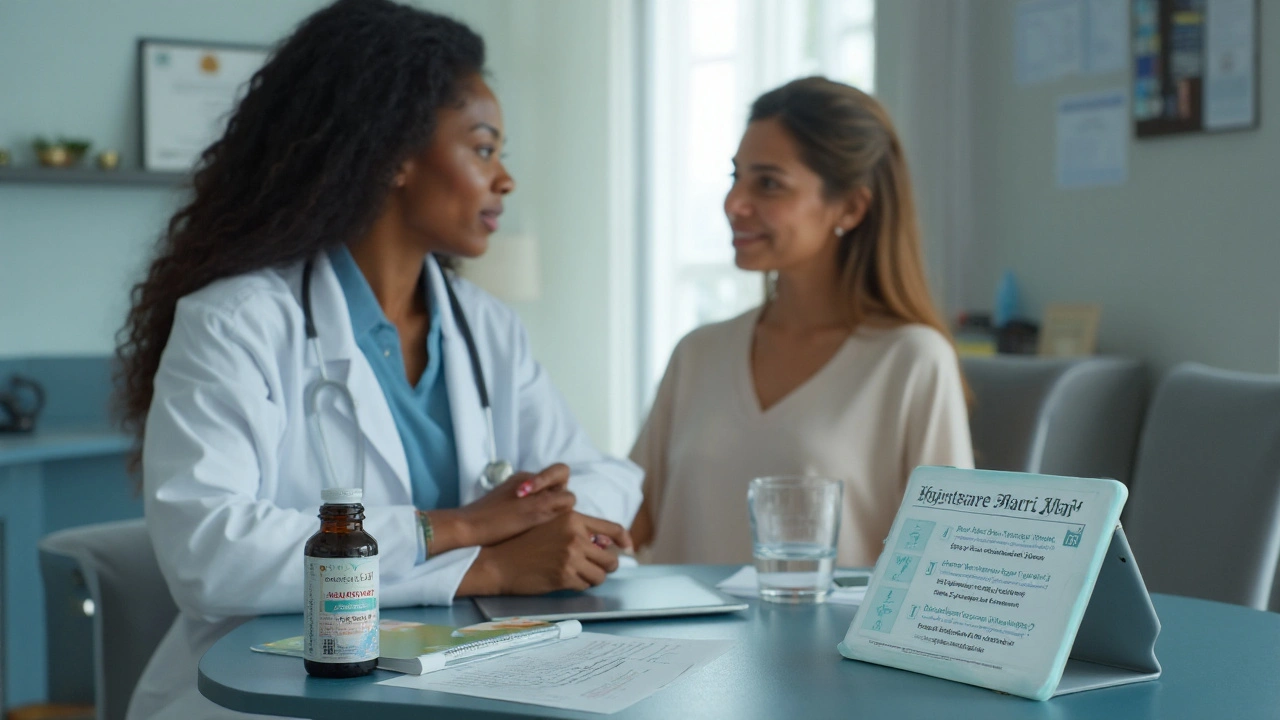Women's Health: Real Advice on Meds, Bleeding Risks & Menopause
Ever wonder why a tiny change in your supplement routine can affect bleeding? You’re not alone. In women, hormones, meds, and everyday products all mix together, creating a unique safety puzzle. This page pulls together the most useful bits from our guides so you can spot red flags before they become problems.
Spotting Bleeding Risks in Everyday Products
Bleeding risk isn’t just about blood thinners. Some herbal blends, like the popular Lukol from Himalaya, claim to boost immunity, but they also contain ingredients that can thin blood. Our 2025 Lukol guide breaks down who should watch their dose, what side effects to expect, and how to pair it safely with prescription meds. The key takeaway? If you’re on aspirin, warfarin, or any anticoagulant, check the label for ginkgo, garlic, or high‑dose vitamin E before adding Lukol to your routine.
Even over‑the‑counter pain relievers can sneak into the bleeding equation. Ibuprofen and naproxen block platelets, raising the chance of a bruise turning into a serious bleed. When you combine these with a supplement that already affects clotting, you’re stacking risk. The safest move is a quick chat with your pharmacist—ask them to run a quick interaction check.
Menopause, Hormones & Medication Choices
Menopause brings a wave of hormonal shifts that can change how your body reacts to drugs. One medication that often pops up is exemestane, an aromatase inhibitor used in breast‑cancer treatment. While exemestane helps lower estrogen levels, it can also increase bone loss and affect clotting factors. Our menopause guide explains why women on exemestane need extra calcium, vitamin D, and regular bone density scans.
If you’re navigating menopause without cancer, hormone‑therapy options still matter for bleeding risk. Some estrogen patches can thin the lining of the uterus, while certain progestins may counteract that effect. The bottom line: never start or stop hormone therapy on your own—talk to your doctor about your personal bleeding history and any supplements you’re taking.
Beyond drugs, lifestyle tweaks can keep bleeding under control. Stay hydrated, keep a balanced diet rich in leafy greens (but not in excess if you’re on anticoagulants), and track any unusual bruising or nosebleeds. A simple journal can help you spot patterns and give your health team concrete data.
We update our articles regularly, so you’ll always find the latest safety tips for women’s health. Bookmark this page, and return whenever you need a quick, reliable check on meds, supplements, or menopause strategies. Your health deserves clear answers, not vague warnings.




